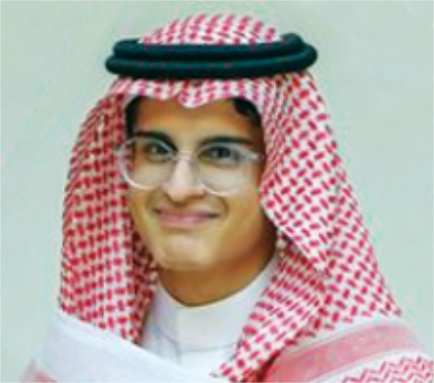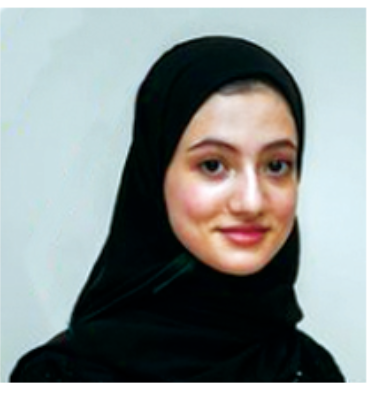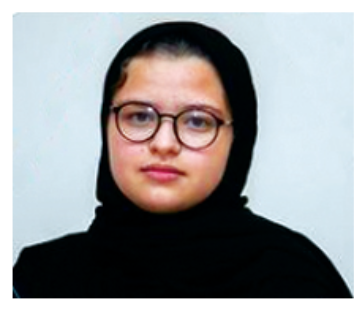JEDDAH: Despite all the challenges the world has been facing over the past year, King Abdul Aziz and his Companions Foundation for Giftedness and Creativity (Mawhiba) has managed to embrace 30 outstanding Saudi students to represent the Kingdom in the world’s largest science competition, Regeneron International Science and Engineering Fair (ISEF) 2021.
ISEF was held virtually in the US in May, and more than 1,800 students from 70 countries participated.
The science fair targeted innovative high school senior students, who were called on to create science projects based on their research.
The winners of this year were announced on May 20-21. The Kingdom was lucky to take home grand prizes for the first top four winners, who came in second, third and fourth places. The prizes varied, with some winners receiving cash and top university scholarships, while others had their projects adopted by major international and local companies.
SPEEDREAD
Regeneron ISEF 2021 was held virtually in the US.
The Kingdom competed with 30 scientific projects by 30 students from various educational departments, representing the Saudi national team.
The Saudi national team won second, third and fourth place.
All the winning projects contribute to the Kingdom Vision 2030.
Since 2007, Mawhiba has helped the Kingdom achieve 83 ISEF awards.
Winners were announced by the US jury, who based their decisions on elements including creativity, presentation skills, ability to answer deep questions related to the projects, and confidence.
Arab News spoke with the winners to learn more about their projects, inspirations, dreams and more.
Saudi Arabia’s winners:
Mansour Al-Marzouqi, second-place winner
Mansour Al-Marzouqi won the second-place grand international prize in the field of Energy: Materials and Sustainable Design for his project “Advanced Synthesis of Potent Photocapacitor Based on Novel 3D-Hierarchical BiVO4 and Self-Synthesized Carbon” — in other words: “Designing a Super-Capacitor that Charges Itself with Light.”
Using locally abundant elements including carbon from date palm leaves and semiconductors such as bismuth and vanadium, Al-Marzouqi’s project was inspired by renewable energy and was endorsed by his professor from King Fahd University of Petroleum and Minerals.

“I fabricated an energy storage device, known as a super-capacitor, that could charge itself under light exposure only. Yet, I greatly increased the electrochemical performance of the device, which allowed it to function as a battery, a capacitor and a solar cell all at once,” he told Arab News.
He added: “Winning in such a competition has been a dream of mine. I felt a huge surge of happiness, gratitude, pride, accomplishment and honor. Winning in Regeneron ISEF is a very tough benchmark, especially due to the extremely high competition.”
Al-Marzouqi hopes that his invention will serve as a “virtue to society,” advancing knowledge and limiting the demand on energy.
“The application of such projects is broad. Supplying enough energy to people is a difficult task, and my project is a great way to address this issue,” the student added.
He is looking forward to proposing the idea to distinguished institutions such as Saudi Aramco, the Ministry of Energy, NEOM, and the Saudi Electricity Company.
“I feel it is my duty to apply impactful projects like this one here in my country,” he said.
Rasha Al-Qahtani, third-place winner

Rasha Al-Qahtani from Riyadh is the third place winner in the field of social and behavioral sciences for her project “An innovative video game feature for the psychological diagnosis of generalized anxiety disorder in adolescence.”
“I created a novel feature that can be applied to video games to help diagnose generalized anxiety disorder in adolescence by displaying decisions for the player to choose from while playing,” she told Arab News. “This approach is the first of its kind.”
Al-Qahtani praised Mawhiba and her parents for their support throughout her nine-year educational journey and expressed how honored she was with this accomplishment.
“I feel honored to have received this appreciation for my research at one of the most challenging science fairs,” she added. “I am proud to represent my beloved country and prove that we symbolize Crown Prince Mohammed bin Salman’s quote when he said: ‘Our ambition is sky-high.’”
Arwa Niazi , fourth-place winner
Arwa Niazi from Dhahran, in the Eastern Province, has been part of Mawhiba since she was in the sixth grade. She received the fourth-place award in the field of material science for her project, “Fabrication of self-charging super-capacitor using laser-assisted self-synthesized carbon quantum dots,” or more simply, “Manufacturing a super-capacitor that responds to the sun using quantum carbon dots.”
“Many researchers have previously tried to create the device that I worked on, but the problem was in the toxic materials applied,” she told Arab News. “With my device, however, I worked on making it 100 percent environmentally friendly.”

She added: “During the pandemic, Mawhiba did a lot to help us participate in this competition. My school provided me with mentors, labs and all the materials I needed, and I am so happy to make my country, family and school proud.”
She expressed how thrilled she was to be among the top four winners and how winning will define her path in future studies.
“Winning feels amazing, and I’m proud that my hard work has paid off,” she said.
Niazi’s application to the University of Wisconsin-Madison has been accepted, and she is currently waiting for a scholarship to support her. She hopes to join King Abdullah University for Science and Technology’s Gifted Student Program or Saudi Aramco’s 10-month College Preparatory Program.
She is also considering being part of the first batch of female students to join King Fahd University of Petroleum and Minerals. In a historic announcement, the university in Dhahran announced that it would start admitting female students for the first time in the 2021/2022 academic year. The university, established in 1963 by a royal decree as the College of Petroleum and Minerals, is widely renowned for its strong science, engineering, business and management programs. It is ranked fourth in the top 100 worldwide universities granted US utility patents in 2018.






























